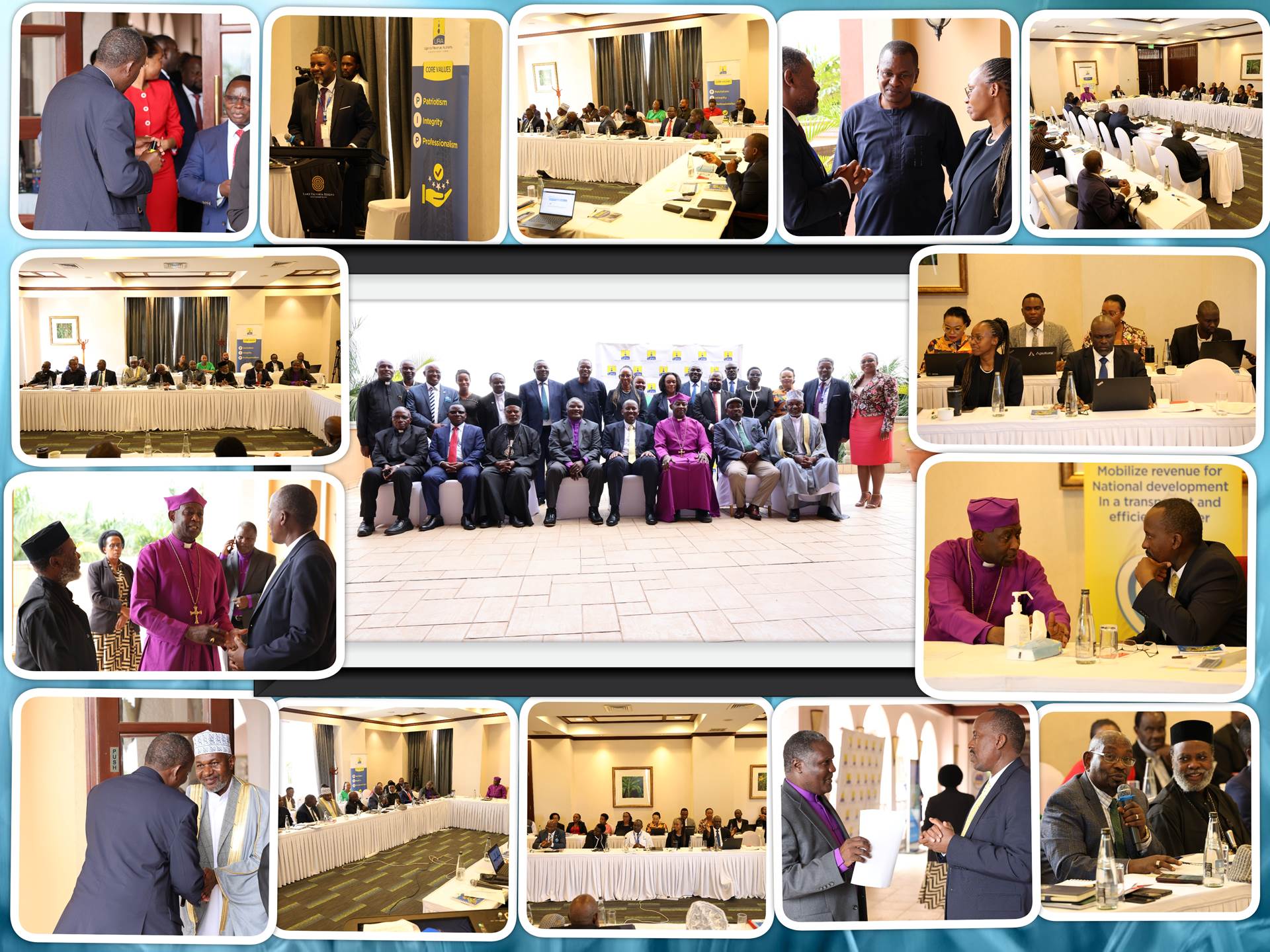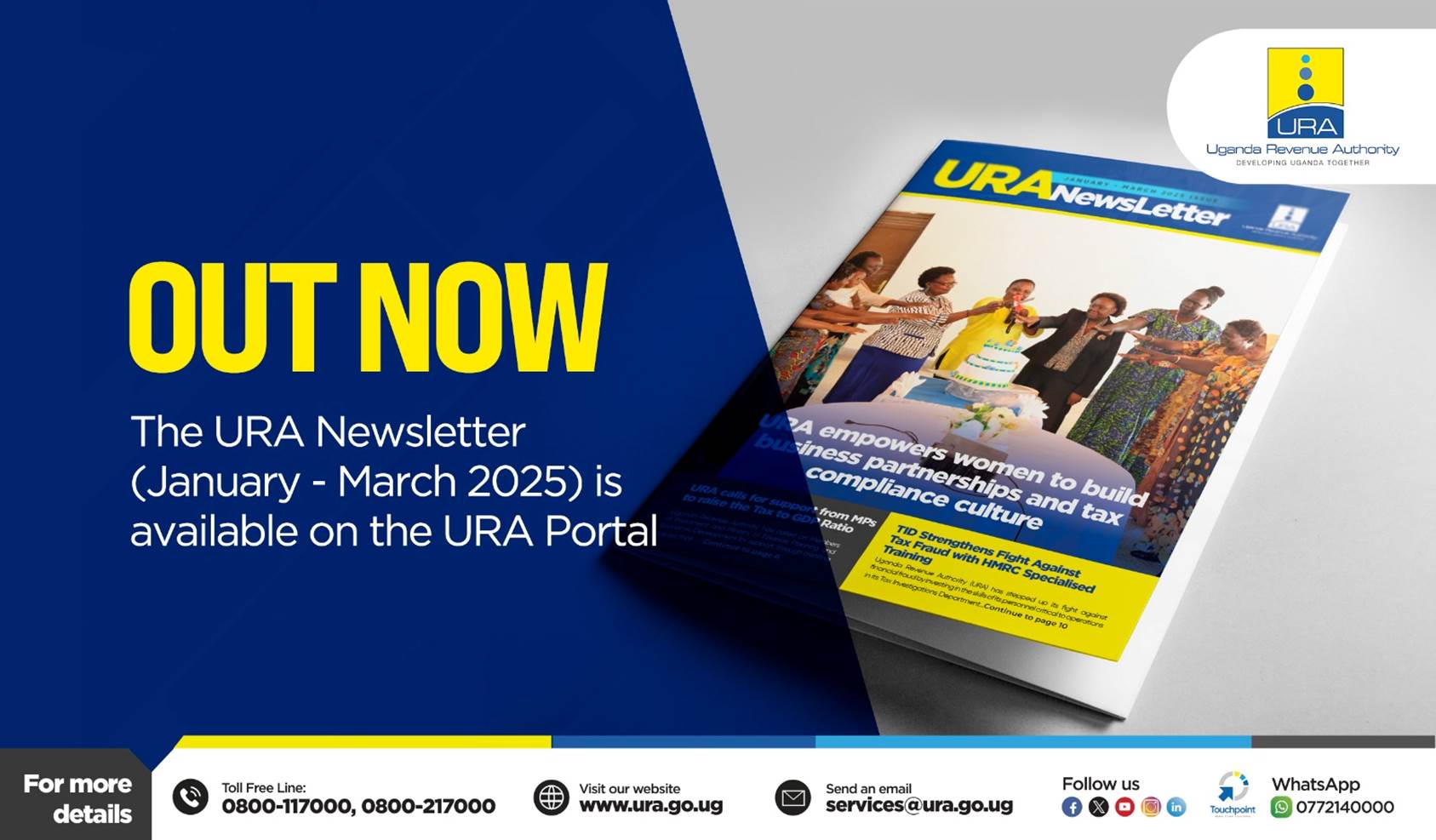By Dismas Nuwaine
The Uganda Revenue Authority (URA) and the Inter-Religious Council of Uganda (IRCU) have agreed to strategically collaborate while using combined influence across communities to promote tax compliance and build a more responsive and informed citizenry that honour their tax obligations.
While addressing the IRCU Council of Presidents at Lake Victoria Serena Hotel Kigo yesterday, John Musinguzi, the URA Commissioner General, pointed out that faith leaders have a unique position of influence and trust within communities, making them consequential partners in the struggle to liberate Uganda from economic dependence.
“If faith leaders consistently remind their congregations about the importance of paying taxes, we could greatly increase awareness and improve compliance,” Musinguzi said. “You’ve been entrusted with mentoring generations; now we request that you also champion this national cause.”
Bishop Joshua Lwere, the co-chair of the IRCU acknowledged this truth with conviction, citing that the entire IRCU, represents well about 95% of the entire population of Uganda.
“This is a unique platform and with the right partnership framework, we can accelerate the public awareness about their tax obligations in the places of worship,” said Lwere, who doubles as the General Overseer of the Association of Pentecostals and Evangelicals in Uganda.
The meeting follows a formal request from the IRCU to discuss the ‘National Mobilisation for Peaceful, Credible 2026 Elections, Stability and Social Cohesion,’ a nationwide initiative that seeks to integrate political, religious, cultural and civic actors, to promote peace and national unity ahead of the upcoming elections.
They also aim to ensure inclusive economic empowerment, and boost household incomes through responsible tax practices.
The Archbishop of the Church of Uganda, The Most Reverend Dr. Stephen Kazimba Mugalu, backed the collaboration, citing biblical teachings on tax. “Jesus taught us to give to Caesar what belongs to Caesar. It’s a duty we must remind our people of,” he said.
Apostle Dr. Joseph Serwadda, the Presiding Apostle of the Born-Again Faith in Uganda, echoed the sentiment, referencing the role of churches during Europe’s reformation in shaping a tax-compliant culture, a model Uganda could adopt.
Musinguzi thanked religious leaders for their ongoing support, noting that previous collaborations have led to noticeable improvements in tax compliance among congregants. He also praised IRCU’s plan to establish an “Elders’ Forum,” where retired professionals can mentor younger generations and hold public officials accountable.
“We welcome this initiative. It complements our efforts to build a culture of integrity and transparency,” Musinguzi said.
He acknowledged that corruption remains a challenge within URA, revealing that hundreds of staff members have been dismissed over the past five years due to misconduct. However, he noted that domestic revenue has continued to grow due to increased efficiency and reduced leakage.
He said that on the issue of mindset change, URA has also intensified tax education efforts through school programs and curriculum development to build long-term awareness among the youth.
Musinguzi called on all religious institutions to honour their statutory obligations, particularly the mandatory payment of Pay As You Earn (PAYE) tax for employees on their payroll.
He emphasized that religious leaders with multiple sources of income are required to file income tax returns and remit any resultant taxes. In cases where a religious leader owns a company, he noted that the company is considered a separate legal entity and must comply with all applicable tax obligations.
Additionally, Musinguzi reiterated that any property owned by a religious institution but used for commercial purposes is liable for taxation. For example, rental income earned from commercial properties owned by religious institutions is subject to rental income tax.










